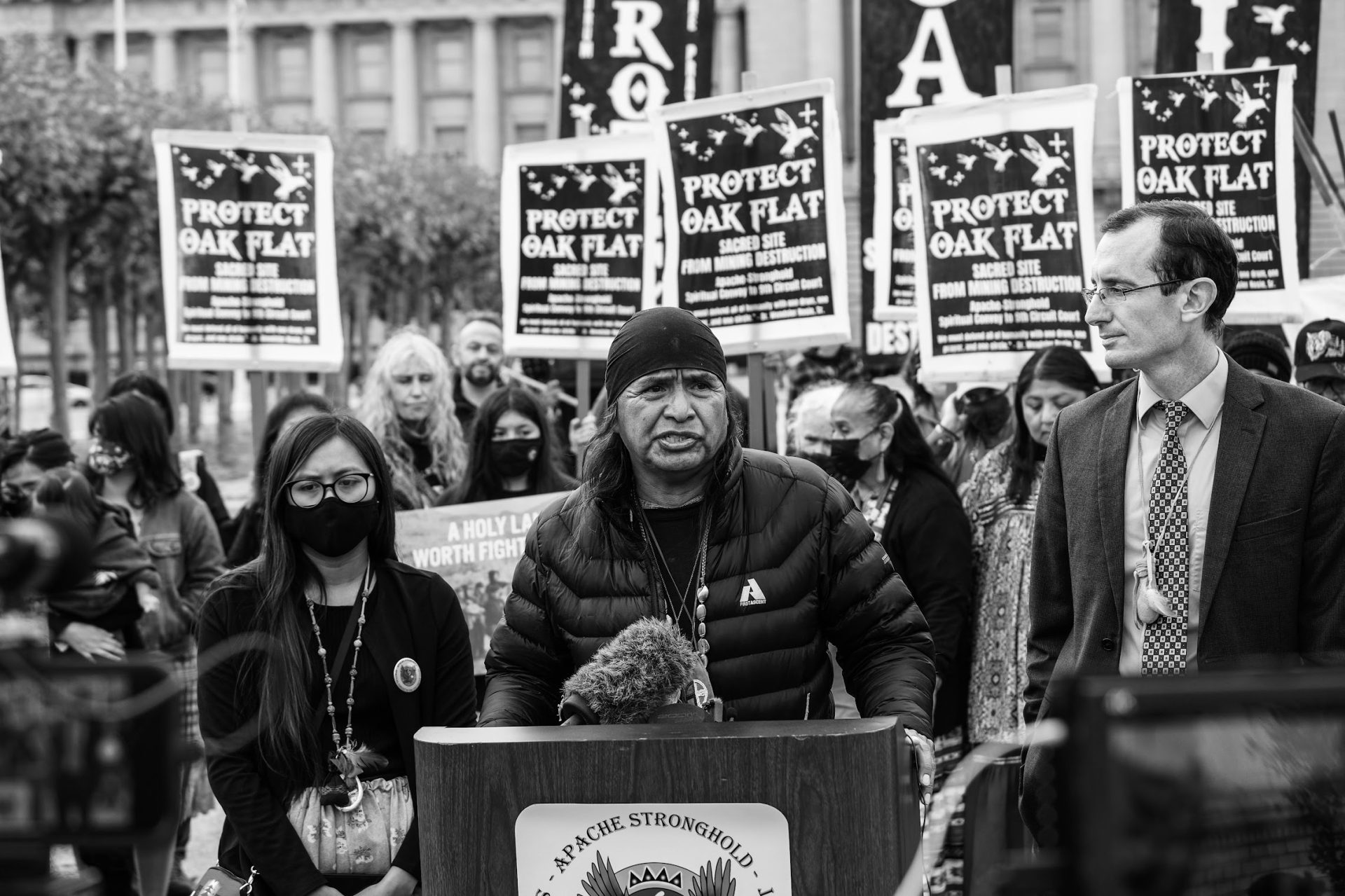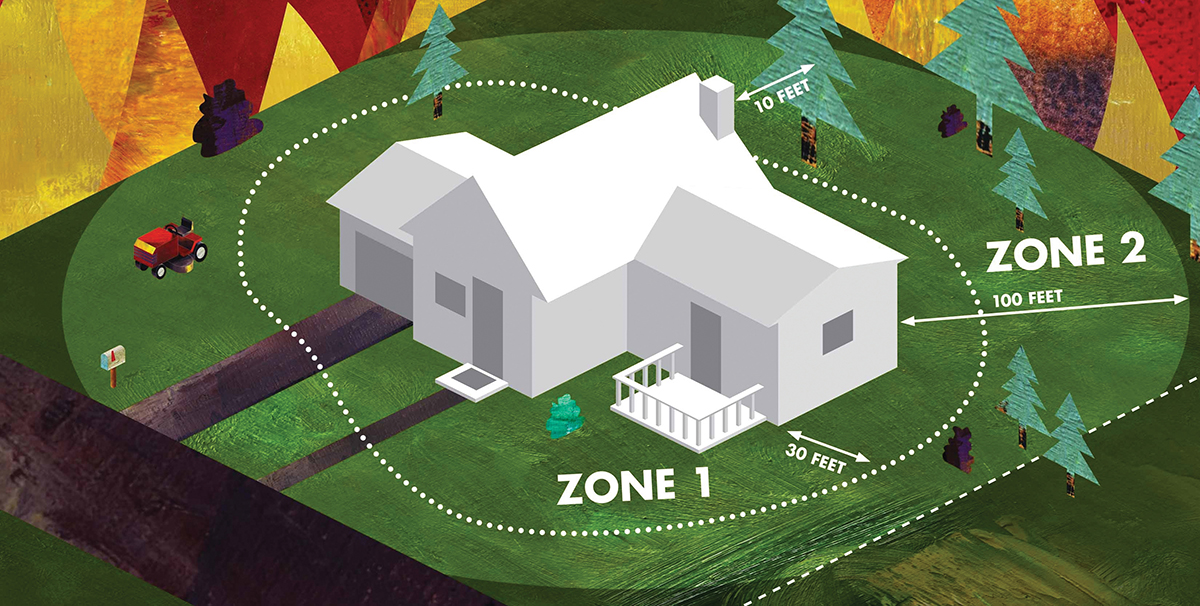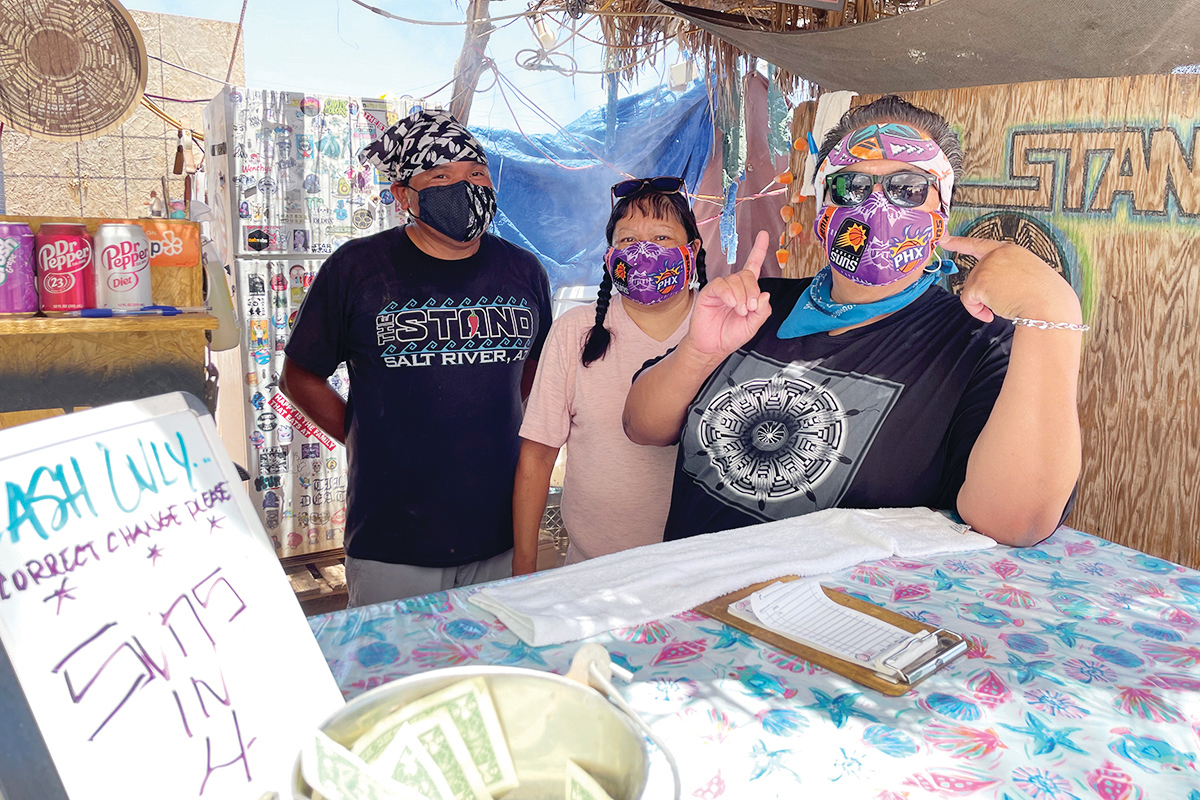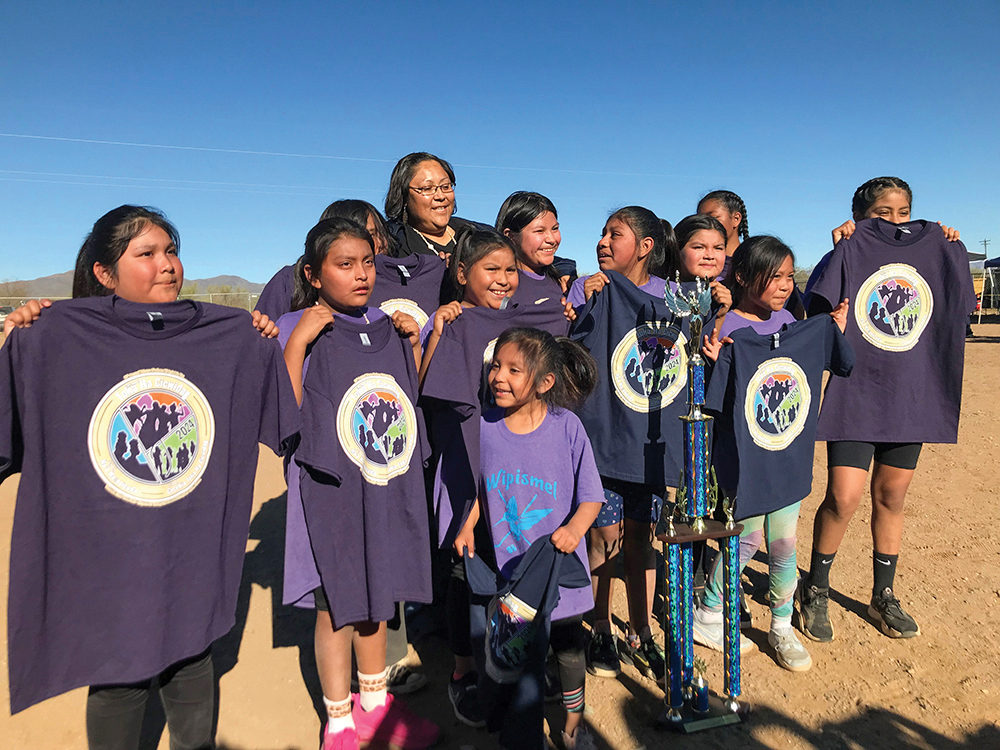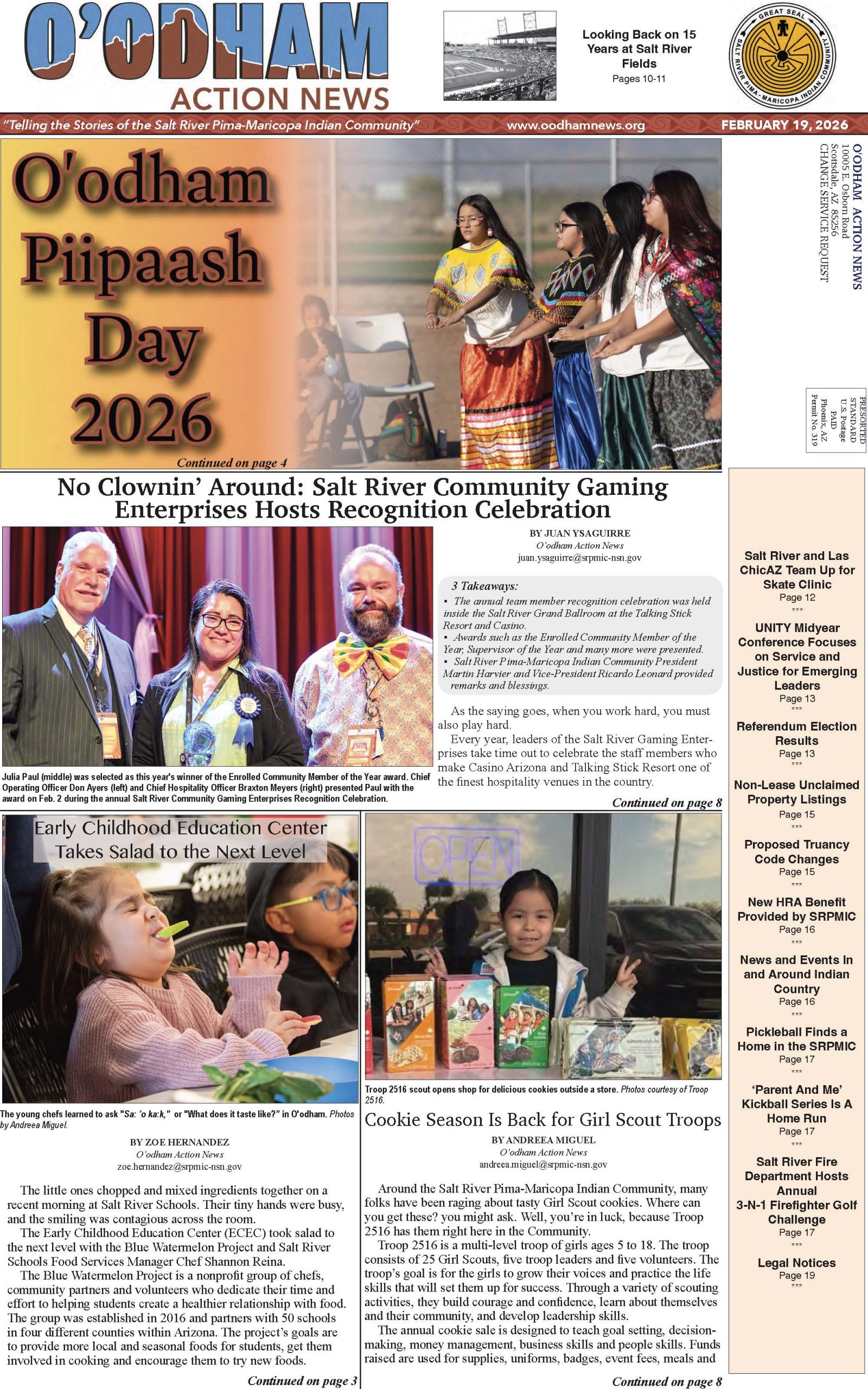VIEWS: 2283
April 19, 2023Fate of Oak Flat Rests on Judge Panel’s Decision
On March 21, the Apache Stronghold group made their case “en banc” in front of a full panel of 11 judges at the Richard H. Chambers U.S. Court of Appeals in Pasadena, California, to save Oak Flat (Chi’chil Bildagoteel in Apache) from becoming a two-mile-wide, 1,100-foot-deep crater due to the copper-mining interests of foreign-owned mining company Resolution Copper.
In 2014, the site, which is culturally significant to the O’odham and other tribes besides the San Carlos Apache Tribe, was given to the mining company by the government in an expedited land exchange called the Southeast Arizona Land Exchange and Conservation Act, which was added at the last minute to a federal defense bill.
Apache Stronghold, a nonprofit community organization dedicated to defending holy sites and freedom of religion, lost its initial appeal to the Ninth Circuit Court of Appeals after a three-judge panel decided that the land-swap deal did not violate their free exercise of religion.
“Today we stood up in court for that right, determined to stop those who think that our place of worship can be treated differently simply because it lacks four walls and a steeple,” said Dr. Wendsler Nosie Sr. of Apache Stronghold.
Luke Goodrich, vice president and senior counsel at Becket Law, the firm that represents Apache Stronghold in the case, spoke on behalf of Apache Stronghold in front of all 11 judges of the U.S. Court of Appeals for the Ninth Circuit.
Goodrich began his argument by addressing the legal definition of what constitutes a substantial burden in this case.
Under the Religious Freedom Restoration Act (RFRA), the government is prohibited from substantially burdening a person’s religious exercise unless the government can satisfy strict scrutiny.
“Both parties agree that if the United States put up ‘No Trespassing’ signs and threatened the Apaches with fines for accessing Oak Flat, that would be a substantial burden,” Goodrich told the panel.
The semantics of what constitutes a “substantial burden” were discussed back and forth between Goodrich and Judge Ryan D. Nelson, an appointee of former President Donald Trump.
Nelson asked if Goodrich’s argument is more for a discrimination case if Nelson was suggesting that the Apaches couldn’t come on the property but anybody else could.
Goodrich replied that in Apache Stronghold’s view, a discriminatory ban, a discriminatory ban on access, or a blanket ban on access would be a substantial burden.
“I haven’t been able to get a clear answer from the government on that,” Goodrich said. “But under RFRA, you can’t impose a substantial burden even if it results from a neutrally, a generally applicable law. So, if a trespassing fine counts as a substantial burden under RFRA, RFRA instructs this court that it counts as a burden whether it’s a generally applicable rule or a targeted rule.”
Judge Nelson responded by saying that Goodrich’s response is “an unusual hypothetical to come up with” and asked about the latest news pertaining to the Final Environmental Impact Statement (FEIS) that the U.S. Forest Service published in 2021, which looked at how the land, water and the environment at Oak Flat would be affected by the mine.
On March 1, 2021, the U.S. Department of Agriculture directed the Forest Service to withdraw the FEIS, Notice of Availability and draft Record of Decision (ROD).
In 2022, the Bureau of Land Management provided a technical review of the FEIS, concluding that the final report “often reads as incomplete and subjective in its preferred approaches” and “did not meet the analysis standards of the [National Environmental Policy Act], or suffered from insufficient evaluation or unsupported conclusions.”
Goodrich told the panel that the government hasn’t come forward with a new FEIS.
“Two years ago, [the Government] said that they would reinitiate consultation and it would be a matter of months, but they still haven’t published [a new FEIS],” he said.
The transfer of the land use to Resolution Copper must occur within 60 days after the FEIS is completed. Goodrich said that the government has represented that it will be republished in a matter of months, and he guesses that the government is just waiting for a decision in this case before deciding to move forward.
Joan Pepin, attorney for the U.S. Forest Service, doubled down on the government’s initial decision on the land transfer. Pepin said that without the land transfer, the land exchange act is nullified, and that is why it cannot be reconciled with the plaintiff’s interpretation of RFRA.
“As this court is aware, this case is not about an agency action, it’s about an act of Congress in which Congress considered the competing demands on a piece of property, balanced those interests and made a decision,” she said.
“It decided that Apache Leap shall be preserved for Native religious and cultural uses. And it decided that Oak Flat shall be transferred to Resolution Copper, so that the third-largest copper ore deposit in the world can be mined.” Becket Law said in a statement that a decision on the case by the Ninth Circuit is expected this summer.

